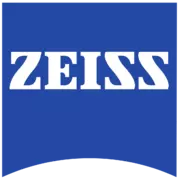Because users will instantly know that your content matches their search query (which can make them more likely to click). Our on-page SEO checklist and tracker helps you keep track of all the little things that you need to do to optimize your content. The tool lets you know if you have your keyword in all the key locations like the H1 and body content (more on why this matters soon). While this guide will show you how to implement on-page SEO (most of which you can do without expensive tools), Semrush’s On Page SEO Checker can provide actionable insights in minutes. Mastering on-page SEO can have a HUGE effect on your rankings, traffic, and conversions. Shareable images, such as infographics and memes, are still a useful off-page SEO strategy.
If a trustworthy website links to your page, you have a fair opportunity that you are equally reliable. Use visual marketing, whether your business is B2B or B2C, to increase audience engagement and secure editorial links from the top websites. Instead of attempting to mislead your viewers with fashionable names and subpar content, provide pertinent facts. The most effective strategy for boosting organic traffic is that. Build your personal and brand authority with relevant influencers to obtain more links from social media. Google stopped displaying the page rank of websites because so many people were abusing it.
Track your branded searches and mentions
Every SEO should have a role in building out a sphere of influencers from your industry, whether individuals, bloggers, disruptors, thought leaders, or businesses. We wrote an entire article on link building strategies and backlinks. According to research from Brian Dean of Backlinko, websites with more backlinks rank higher than those with fewer. You can Google roundups in your niche to find websites that publish them and reach out to the site owner. Alternatively, you can use social media platforms like LinkedIn to connect with other business owners and suggest a collaboration.
- It’s based on the quality and quantity of backlinks, organic traffic levels, and the naturalness of the site’s entire backlink profile.
- Off page SEO forms the basis of a site’s reputation, pagerank, and search engine ranking, covering everything from link building to social media engagement.
- Most of all, audiences like case studies and learning about specific strategies that have helped you reach success.
- In addition to improving your copywriting, you may want to incorporate SEO-optimized images such as infographics, GIFs, comparison tables, and pie charts.
- There’s no reason to debate whether off-page SEO practices work or not; there’s a direct correlation between higher search rankings and off-page signals.
Write High-Quality Content
Like most people, Daniel was initially tempted to build links to his agency site with guest posting. This really only works if you publish guest posts on authoritative websites in your industry. The vast majority of that page’s links cited a specific stat from that page (that long tail keywords make up 70% of all searches). Off-page SEO is all the stuff you do off of your site to get Google and other search engines to see your website as trustworthy and authoritative. Public speaking at industry events, conferences, and summits builds credibility and often results in high-value backlinks.
What should you look for in your off-page SEO tools?
Search engines like Google and Bing consider authority a key ranking factor. On-page SEO ensures that your site can be read by both potential customers and search engine robots. As a best practice, make sure your page content includes 1-3 relevant internal links. Local SEO encompasses several things and involves optimizing your brand’s local presence to increase visibility, traffic, and brand awareness. Building backlinks to different pages on your site works to improve your link profile SEO Anomaly and increase your page’s/site’s ability to rank in the SERPs.
Using a website SEO checker, you can analyze your backlink profile, including metrics like quality, relevance, and SEO check of website links. For example, a citation on a website like Google or Facebook or Yelp is more valuable than a citation on a random website with low domain authority. Just like an industry-specific citation will hold more weight than a non-specific citation. According Moz, domain-level links carry 21% of the ranking weight and page-level links carry 19.2% of the ranking weight. The greatest content in the world is unlikely to rank high on Google search if the website that publishes it has no trust or authority in the eyes of search algorithms.
